American College of Emergency Physicians (ACEP) | California American College of Emergency Physicians (CalACEP) |
||
 |
Marc Futernick, MD, is the chair of the MSCCH Steering Committee. He is an Emergency Physician working primarily in Los Angeles. He is Director of Clinical Services for U.S. Acute Care Solutions, a multi-specialty physician services company. Dr. Futernick is a graduate of UCLA (B.S. Biochemistry) and Tulane University School of Medicine. He completed residency training in Emergency Medicine at UCSF-Fresno in 2000 and has practiced in Los Angeles since then. Dr. Futernick was an original founder of the Environmental Action Committee at Dignity Health California Hospital Medical Center (CHMC), whose efforts have been recognized by Practice Greenhealth each year since 2013.Dr. Futernick is the Managing Editor for the Journal of Climate Change and Health, and serves on the Board of Directors of Climate Resolve, a non-profit whose mission is to champion equitable climate solutions.
Dr. Futernick is a Past President of the California Chapter of the American College of Emergency Physicians. He also serves on the Board of Directors of the Dignity Health California Hospital Medical Center Foundation. He is an active fundraiser for the hospital, chairing the annual Heart of the City 5K run/walk. Dr. Futernick lives in Pasadena with his wife and two sons. |
|
Society for Academic Emergency Medicine (SAEM) |
||
 |
Caitlin Rublee, MD, MPH, is the co-chair of the MSCCH Steering Committee. She is an Assistant Professor of Emergency Medicine at the Medical College of Wisconsin and faculty in the Institute for Health and Equity. She completed her MD and MPH degrees at the University of Wisconsin School of Medicine and Public Health followed by residency at the Ohio State University. She subsequently completed a Climate and Health Science Policy Fellowship at the University of Colorado. Dr. Rublee is the 2020-2021 chair for the Society for Academic Emergency Medicine Climate Change and Health Interest Group and is on the Board of Directors for Wisconsin Health Professionals for Climate Action. Her main interests are in preparing health care facilities and developing emergency care systems to respond to extreme weather events. | |
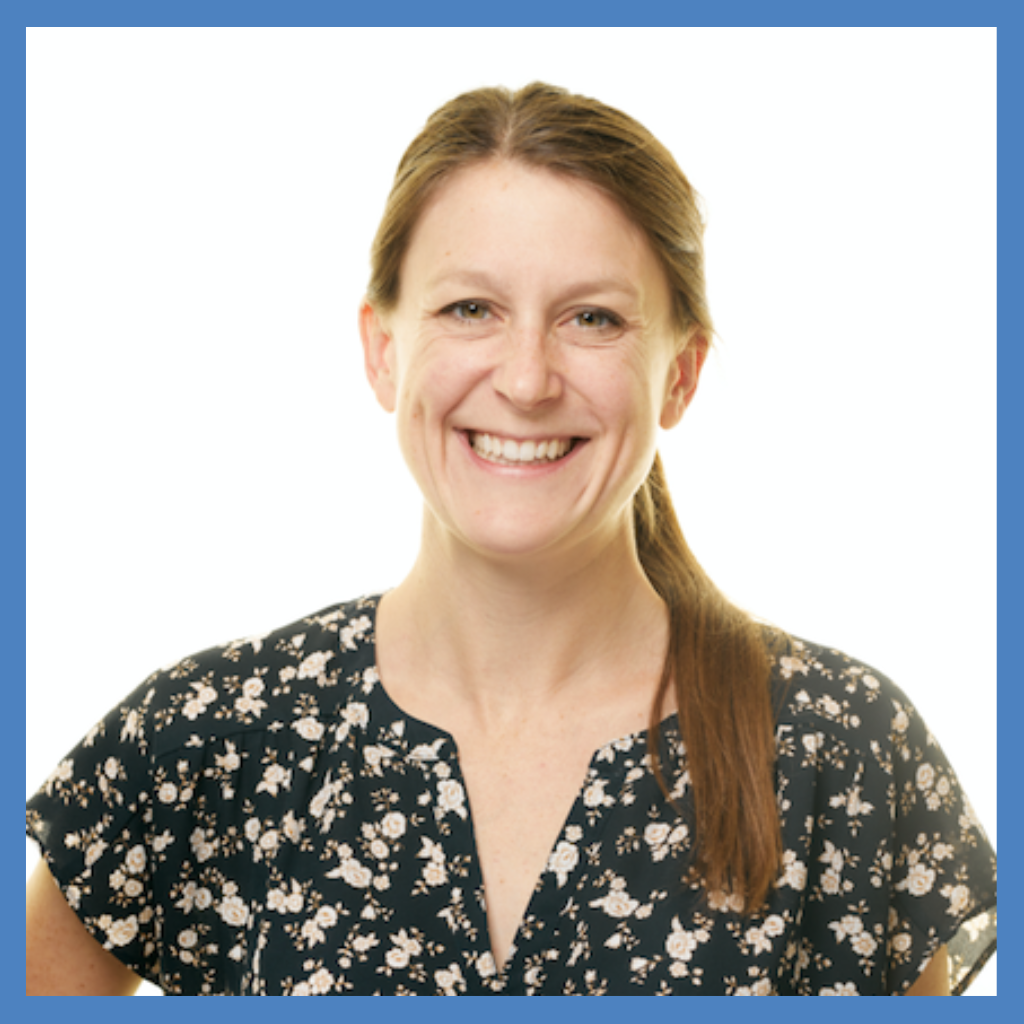 |
Hanna Linstadt, MD, is an Emergency Medicine physician in Northern California. She attended residency at Stanford and completed the Climate and Health Science Policy Fellowship at the University of Colorado in 2021. She served as the Chairperson for Society of Academic Emergency Medicine’s Climate Change and Health Interest Group from 2021-2022. She has a special interest in health care sustainability and has also published works related to food security and climate change, the incorporation of climate and health into medical education, and the health effects of fossil fuels. | |
American College of Physicians (ACP) |
||
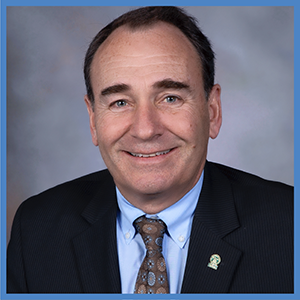 |
Robert McLean, MD, MACP, FRCP, is the immediate past chair of the MSCCH Steering Committee. He is the Immediate Past-President of the American College of Physicians (ACP). He practices internal medicine and rheumatology in New Haven, Connecticut with Northeast Medical Group of Yale New Haven Health, where he also serves as a Medical Director. A graduate of Williams College and the University of Maryland School of Medicine, he completed his internal medicine residency and then a rheumatology fellowship at Yale. He is an Associate Clinical Professor of Medicine at the Yale School of Medicine. He has been involved in healthcare advocacy at the local and national level with the ACP for over 20 years. ACP, the largest specialty organization in the United States with over 159,000 members, released a high-profile policy paper on Global Climate Change and Health in 2016 which outlines climate change as a public health crisis needing our attention. | |
American Academy of Child and Adolescent Psychiatry (AACAP) |
||
 |
Elizabeth Pinsky, MD, is a child and adolescent psychiatrist and pediatrician at Massachusetts General Hospital, where she is the Associate Director of the Pediatric Psychiatry Consultation Service, and at Shriner’s Hospital for Children Boston. She received her medical degree from Harvard Medical School and completed consecutive residencies in pediatrics and psychiatry followed by child psychiatry fellowship, all at MGH and MGH/McLean. Her clinical interests focus on the intersection of child mental and physical health, including childhood trauma associated with medical care and fostering resilience in medically ill children. Dr. Pinsky believes that climate change poses the most urgent threat to children at that intersection of physical and mental health, and that clinicians caring for children have a responsibility to advocate for a rapid and just transition off fossil fuels. She serves as the Associate Director for Advocacy at the Mass General Center for Environment and Health and is also a founding member of Climate Code Blue, a Boston-area climate action group for physicians and other health professionals. | |
American Academy of Physical Medicine and Rehabilitation (AAPM&R) |
||
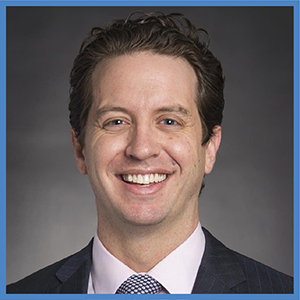 |
Justin Bishop, MD, MBA, MS, is a physical medicine and rehabilitation physician born and raised out of Dallas, TX. Before ending back in Dallas and in medicine, he obtained a master’s degree in Marine Biology in Mississippi working on various ecological/evolution/phylogenetic projects relating to pre-/post-Katrina effects or overall Mississippi Basin fish population health. After moving back to Texas to complete some songbird research, Justin went on to obtain his MD and MBA in health organizational management back at Texas Tech University where he went for his previous undergraduate degree. He moved back to Dallas to finish up his residency training at Baylor Univ Medical Center Dallas. Justin has enjoyed his time advocating for patients while serving on multiple committees on the county, state, national level and takes great pride lobbying on the hill while serving as board member for the Texas Medical Association, American Medical Association Political Action Committee, and American Academy of Physical Medicine and Rehabilitation. | |
Academic Pediatric Association (APA) |
||
 |
Sandra H. Jee, MD, MPH, FAAP, is a board-certified pediatrician and Professor of Pediatrics and Center for Community Health and Prevention at the University of Rochester School of Medicine. She graduated from Yale College, completed her medical degree with distinction in research from the University of Rochester, pediatric residency from New York University and University of Michigan, and masters in public health degree and pediatric health services research fellowship from the University of Michigan. She completed fellowship in Integrative Medicine from the Andrew Weill Center in Integrative Medicine at the University of Arizona and also training in pediatric environmental health through the New York State Children’s Environmental Health Scholars Program. She is currently Director of the Finger Lakes Children’s Environmental Health Center in Rochester, NY, which is part of the first statewide network for Children’s Environmental Health Centers, collaborating with academic and community partners to provide education and outreach on children’s environmental health priority areas, including climate change. | |
Academy of Integrative Health and Medicine (AIHM) |
||
 |
Tabatha Parker, ND, is a naturopathic physician who currently serves at the Academy of Integrative Health & Medicine (AIHM) as the Executive Director. Dr. Parker was named Physician of the Year in 2015 by the American Association of Naturopathic Physicians (AANP) and Visionary of the Year by UTNE Reader in 2011. In 2015, she received an honorary degree from the Canadian College of Naturopathic Medicine (CCNM) and was given the highest honor in naturopathy, “Magister Natura” from Spain for her work advancing the naturopathic profession globally.
Dr. Parker was founding co-chair of the Masters in Global Health at National University of Natural Medicine (NUNM) in Portland, OR, the first global health masters offered at a naturopathic medical school, and was previously faculty at Bastyr University California. She was interim co-secretary general of the World Naturopathic Federation, and worked with the World Health Organization on the WHO Benchmarks for Training in Naturopathy. She established and co-chaired the Global Health Committee of the American Association of Naturopathic Physicians for over 10 years. |
|
 |
Mimi Guarneri, MD, ABIHM, is president of the Academy of Integrative Health and Medicine (AIHM), and board-certified in cardiovascular disease, internal medicine, nuclear medicine, and integrative holistic medicine by the ABIHM. Dr. Guarneri is the founder and director of Guarneri Integrative Health, Inc. and Taylor Academy for Integrative Medicine Education and Research located at Pacific Pearl La Jolla in La Jolla, CA. Dr. Guarneri served cardiology fellowships at both New York University Medical Center and Scripps Clinic. She is a fellow member of the American College of Cardiology, Alpha Omega Alpha, and the American Medical Women’s Association. Dr. Guarneri founded the Scripps Center for Integrative Medicine and served as Medical Director for 15 years. | |
American Academy of Allergy, Asthma & Immunology (AAAAI) |
||
 |
Stuart L. Abramson, MD, PhD, AE-C, FAAAAI, is on the Board of Directors of the American Academy of Allergy, Asthma & Immunology (AAAAI), and will serve as an At-Large Director from 2020 to 2024. Dr. Abramson has worked as the Director of Allergy and Immunology Services at Shannon Clinic/Medical Center in San Angelo, Texas since 2011. Prior to this, he served as Associate Professor of Pediatrics at Baylor College of Medicine where he had a faculty role training 79 fellows in allergy/immunology. He also directed the pediatric allergy/immunology clinic at Ben Taub Public Hospital in Houston for 20 years. Dr. Abramson completed his MD, PhD in immunology, and residency in pediatrics at Baylor College of Medicine, and his allergy/immunology fellowship at the National Institutes of Health. Over the years Dr. Abramson has developed a strong interest in education and has held positions on the Board of Directors for the American Board of Allergy and Immunology and for Certified Asthma Educators. He has chaired the Continuing Medical Education Committee for the Texas Medical Association (TMA) and served on the Accreditation Review Council for the Accreditation Council for Continuing Medical Education. He served as President of the Concho Valley County Medical Society for 2019 and currently serves on the TMA Board of Councilors. | |
American Academy of Family Physicians (AAFP) |
||
 |
Ryan Lester MPH, has served in public sector and non-profit executive leadership roles for the past 15 years. Currently, Ryan serves as the Vice President, Health of the Public and Science at the American Academy of Family Physicians. The learnings from this unique set of public, private and non-profit experiences has led to an approachable and effective leadership style. He has a Bachelor’s of Science in Environmental Studies from the University of Kansas which spurred his passion for environmental health issues and a Master’s in Public Health (concentration in Public Health Administration) from the University of Kansas Medical Center. In addition, he plays an adjunct Professor role at Washburn University for Population Health. Past volunteer roles include Treasurer and President-Elect for the National Association of Chronic Disease Directors and the chair of the Olathe Housing Authority Board. | |
American Academy of Pediatrics (AAP) |
||
 |
Bethany Carlos, MD, is a Primary Care Pediatric Resident at the Medical University of South Carolina where she completed medical and residency training. Prior to entering medical training, Bethany obtained a Masters of Public Health with a focus in health disparities, community health, infant mortality and other maternal and child health topics. Since the beginning of her medical training, she pursued opportunities to bridge the gap between traditional medicine and public health. In addition to her affiliation with the National Medical Association, she is also active in the American Academy of Pediatrics and serves as a National Health Service Corps participant. Bethany was honored to be accepted into the NMA Climate and Health Equity Fellowship because understanding the impact of climate on community health will help her better serve her patients. She is looking forward to equipping minority communities with tools about the environment that they live, play, learn, and worship in. Particularly in pediatrics, she is always aiming to prevent the onset or worsening poor health outcomes. | |
American Association for Community Psychiatry (AACP) |
||
 |
Gary Belkin, MD, PhD, MPH is Director, Billion Minds Project at Columbia University, and Chair, COP2 (cop2.org). A psychiatrist who approaches mental health as a building block of social policy and progress, he recently founded Billion Minds as a “think-action tank.” The intention of Billion Minds is to link mental health to problems of great scale, specifically to the climate crisis, and to safeguarding sustainable societies through a humane social climate. COP2 was one outcome of that work—a global network aligned about converging growing activity and learning on climate-psychological resilience connections and putting them to global scale. An initial effort from that is to produce an implementation Roadmap for the UNFCCC Race to Resilience to incorporate the goal of building capacity to promote those supports to 4 billion people by 2030.
Gary is also the former Executive Deputy Commissioner in the New York City Department of Health and Mental Hygiene where he led the Division of Mental Hygiene and its development and implementation of the innovative NYC-wide public mental health initiative, ThriveNYC. Before joining city government, he was Medical Director for Behavioral Health across the Health and Hospitals Corporation of the City of New York, and served as Founding Editor in Chief of the open access journal Global Mental Health. As Director of the NYU Program in Global Mental Health, Gary partnered with other groups globally to test and scale community-led models of mental health promotion and access in less resourced countries that are now widely used. A graduate of Warren Alpert Medical School of Brown University, where he also earned his undergraduate degree, Gary earned his MPH at Harvard School of Public Health and a doctorate in the Department of the History of Science at Harvard University. |
|
American College of Chest Physicians (CHEST) |
||
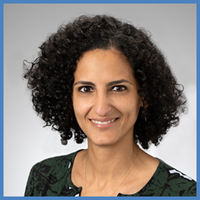 |
Stephanie Maximous, MD, MS is a Pulmonary and Critical Care physician at UPMC, a clinician educator, and an assistant professor at the University of Pittsburgh. She completed her internal medicine residency at Boston Medical Center, followed by a year working with Partners in Health in Rwanda. She completed her PCCM fellowship and obtained her master’s degree in medical education in 2017 from the University of Pittsburgh. She serves as an Associate Program Director for the UPMC Pulmonary and Critical Care Medicine fellowship training program, core subspecialty faculty for the Internal Medicine Residency program, and an instructor in several University of Pittsburgh School of Medicine courses. She is one of the co-founders of the UPMC Clinicians for Climate Action, a grass-roots group formed in 2022 when several physicians launched a campaign to significantly improve healthcare sustainability at UPMC, the largest healthcare system in Pennsylvania. Stephanie co-chairs the Sustainability and Climate Health Education Committee for C4CA and has an interest in how we train the next generation of clinicians to both understand the implications of climate change on patients’ health and also how clinicians can advocate for environmental justice and healthcare sustainability.
|
|
American College of Lifestyle Medicine (ACLM) |
||
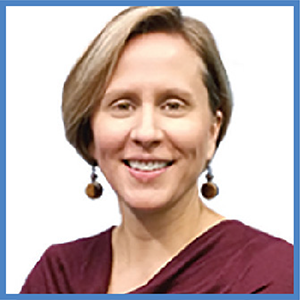 |
Amanda McKinney, MD, FACLM, FACOG, CPE, DipABLM, is board certified in Obstetrics and Gynecology, Female Pelvic Medicine and Reconstructive Surgery, and Lifestyle Medicine. She is also a Certified Physician Executive through the American Association of Physician Leadership and serves as the Founder and Executive Director of the Institute for Human and Planetary Health at Doane University. Through the Institute she develops and delivers Continuing Medical Education in Lifestyle Medicine as well as Planetary Health on edX, Harvard, and MIT’s massive open online course provider. The mission of Institute for Human and Planetary Health is to present the evidence that the dietary pattern that best preserves both human and planetary health is based on minimally processed, whole plant foods grown using sustainable and restorative agricultural practices and seeks to provide educational opportunities for those who want to restore human and planetary health, create resilient, healthy communities and help transform current policy that favors high-cost medical care, industrial agricultural and food production systems over people and the environment. | |
 |
Neha Pathak, MD, FACP, DipABLM, is dual board-certified in internal medicine and lifestyle medicine. She is on the medical team responsible for ensuring the accuracy of health information on WebMD and reports on topics related to lifestyle, environmental, and climate change impacts on health for WebMD/Medscape and Yale Climate Connections.Pathak is a founding member of Georgia Clinicians for Climate Action, on the Boards of Georgia Interfaith Power and Light and Bhumi Global (a Hindu Faith-Based Environmental Coalition), and Chair of the Global Sustainability Committee for the American College of Lifestyle Medicine. She is a Public Voices Fellow on the Climate Crisis with the Op-Ed Project and Yale Program on Climate Change Communication.
She is also an associate program director of the Atlanta VA Medical Center’s Quality Scholars Program and an Adjunct Assistant Professor of Medicine at Emory University School of Medicine. Pathak is a graduate of Harvard University and Weill Medical College of Cornell University. She lives in Atlanta with her husband and three daughters. |
|
 |
Kathryn J. Pollard, MS, is Research Projects Manager for the American College of Lifestyle Medicine (ACLM), medical society for physicians and health professionals dedicated to the practice of lifestyle medicine as the primary modality to treat chronic conditions and foundation for a sustainable healthcare system. She is administrator of the ACLM Global Sustainability Committee and adjunct faculty for University of New England graduate nutrition program. Kathy holds an MS with honors in Applied Clinical Nutrition from NY Chiropractic College, BA in Mass Communications from University of California, Berkeley, certification in plant-based nutrition through the T. Colin Campbell Center for Nutrition Studies. and was one of the first instructors for the Center’s plant-based nutrition certification course through eCornell. Her upcoming book, Eating Does It: Healing Our World and Our Planet with Food, is due out in 2024. Kathy serves on the Board of directors for the Plant-based Prevention of Disease conferences (P-POD). |
|
American College of Medical Toxicology (ACMT)
|
||
 |
Fred M. Henretig, MD, MSHP, FAAP, FACMT, is Professor Emeritus of Pediatrics at the Perelman School of Medicine (PSOM), University of Pennsylvania, and Senior Toxicologist, Poison Control Center (PCC) and Associate Medical Director of Emergency Preparedness, both at the Children’s Hospital of Philadelphia (CHOP). He has over 47 years of experience in academic pediatric emergency medicine and medical toxicology. Dr. Henretig participated in the founding of Philadelphia’s regional poison control center in 1985, and then served as its medical director until 2005. His scholarly interests while an active clinician included many areas within pediatric emergency medicine, including its procedural aspects, infectious disease emergencies, pediatric toxicology and environmental health, biological and chemical terrorism defense, and grandparent involvement in child safety and injury prevention. He is an editor or co-author of five textbooks, and has authored or co-authored 60 original articles and over 100 textbook chapters and review articles. Dr. Henretig served on the Board of Directors of the American College of Medical Toxicology (ACMT), and represented the American Board of Pediatrics on the Sub-board of Medical Toxicology, which he chaired in 2000. In 2011, he received a Master Clinician award from the Department of Pediatrics at CHOP, and the Michael Shannon Humanitarian Award from the Section of Emergency Medicine of the American Academy of Pediatrics, that “recognizes a pediatric emergency medicine physician who has demonstrated excellence in clinical care, mentoring, didactic and bedside teaching, voluntary service and scholarly activities”. In 2015, the ACMT awarded him its Matthew J. Ellenhorn award, “to honor an individual who has made extraordinary contributions to the field of medical toxicology”. | |
American College of Obstetricians and Gynecologists (ACOG) |
||
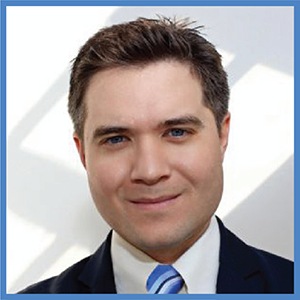 |
Nathaniel DeNicola, MD, MSHP, FACOG, is a board-certified Obstetrician and Gynecologist and Assistant Professor of Ob/Gyn at The George Washington University. He serves as the American College of Obstetricians and Gynecologists’ (ACOG), an organization of 58,000 members, environmental health expert and liaison to the American Academy of Pediatrics (AAP) Executive Council on Environmental Health. In this role, he has served ACOG as a national speaker on emerging environmental health trends. He has published scholarly articles on the interaction of toxic environmental exposures and reproductive health, and he sits on the ACOG Committee on Obstetrics Practice to guide new environmental health practice recommendations. He is also a Senior Fellow of the Leonard Davis Institute on Health Economics, University of Pennsylvania. | |
American College of Osteopathic Internists (ACOI) |
||
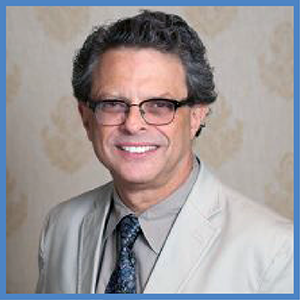 |
Samuel Snyder, DO, FACOI, is board certified in both Internal Medicine and Nephrology. He is a Fellow in the American College of Physicians, the American College of Osteopathic Internists and the American Society of Nephrology. Dr. Snyder is a Fellow of the Health Policy Fellowship at Ohio University College of Osteopathic Medicine. He has been on the faculty of Nova Southeastern University since 1995 and now serves as professor and chair of the Department of Internal Medicine in the Kiran C. Patel College of Osteopathic Medicine. He served as the program director of the osteopathic internal medicine residency at Mt. Sinai Medical Center in Miami Beach and serves on the Board of Directors of the American College of Osteopathic Internists (currently as Secretary-Treasurer), and the Residency Review Committee for Internal Medicine for the Accreditation Council of Graduate Medical Education. | |
American College of Preventative Medicine (ACPM) |
||
 |
Katrina Rhodes, MD, MS, is a board-certified preventive medicine physician with strong clinical expertise, business acumen, strategic thinking, and understanding of global health policy, patient-centered health technology, and health care regulations. Dr. Rhodes has 12 years of combined industry (6 in FDA clinical review, Otsuka clinical trial medical monitoring, drug discovery research) and clinical (6 in patient care, clinical research) experience. She is currently the NMA Washington, D.C., Community Medicine & Public Health Section Chair, Council on Medical Legislation member, and Commission on Environmental Health member. Within the American Medical Association, Chicago, IL, Dr. Rhodes is Commission to End Health Care Disparities representative, Health Equity Task Force member, and Preventive Medicine Section Council representative. | |
American College of Radiology (ACR) |
||
 |
Beth Zigmund, MD is a cardiothoracic radiologist and an Associate Professor of Radiology at the University of Vermont Medical Center, Larner College of Medicine. Dr. Zigmund earned her medical degree from Drexel University College of Medicine and went on to complete her radiology residency at Georgetown University Hospital and cardiothoracic radiology fellowship at the University of Pennsylvania Medical Center.At the University of Vermont Medical Center, Dr. Zigmund’s leadership roles include Division Chief of Cardiothoracic Radiology and Director of Lung Cancer Screening. She has a strong interest in population health and health equity, both through her lung cancer screening work at UVMMC and as Co-Chair of the VT Lung Cancer Screening Task Force, as well as through a partnership with the UVMMC Community Health Improvement Department and Digital Health Services Department in efforts to expand telehealth access to vulnerable and underserved populations, with health co-benefits related to reduced transportation emissions and pollution.Dr. Zigmund is passionate about advocacy and policy as tools for addressing climate change. She has volunteered with local groups to enact policies related to natural resource preservation and green building, and she volunteers for the Citizens Climate Lobby and VT Climate and Health Alliance. She was co-author of the recently adopted American College of Radiology Resolution on Climate Change and Sustainability and is Co-Chair of the organization Radiologists for a Sustainable Future. She serves on the American College of Radiology Task Force on Climate Change and Sustainability, the Association of University Radiologists Committee on Climate Change and Sustainability, and the University of Vermont Medical Center Sustainability Council. | |
 |
Julia Schoen is a Musculoskeletal Radiology Fellow at Wake Forest University School of Medicine in Winston-Salem, NC. Prior to medical school Dr. Schoen received undergraduate and graduate degrees in environmental engineering. She co-chairs the American College of Radiology’s task force on Environmental Sustainability and Climate Change, and she is the co-founder of Radiologists for a Sustainable Future, a radiologist subgroup of the Healthcare without Harm Physician network dedicated to advancing sustainability in the radiology department. | |
American Geriatrics Society (AGS) |
||
 |
Diane Chau, MD, FACP, a board-certified geriatrician, has been providing care focused on older adults since 2002. This includes primary care, skilled nursing care at the Veteran Affairs Community Living Center, and work through the Program of All-Inclusive Care for the Elderly. Dr. Chau has a strong history in academic geriatrics and has been funded by the Health Resources & Services Administration since 2003 with multiple publications. Currently, Dr. Chau is an Associate Professor of Health Sciences Medicine at the University of California, San Diego where she is the Project Director for the Geriatric Education Center Geriatric Workforce Enhancement Project. She also has been an active AGS member serving on the AGS Board of Directors, President of the California AGS State Affiliate, and as an AGS Board Representative for the Council of State Affiliate Representatives. | |
American Medical Association (AMA) |
||
 |
Ilse R. Levin, DO, MPH, TM, is a board-certified internist and an epidemiologist living in Silver Spring, Md. Elected to the American Medical Association Board of Trustees in June 2020, she is a fellow of the American College of Physicians and has served in many leadership positions throughout her career, including serving on three separate delegations within the AMA House of Delegates: the California Medical Association, the Massachusetts Medical Society and as chair of the American Society of Addiction Medicine.
A past member of the AMA Council on Science and Public Health as a resident from 2006 to 2009 and in a full seat from 2009 to 2017, Dr. Levin has represented the AMA to the American Association for the Advancement of Science, and the Centers for Disease Control and Prevention’s National Advisory Council for the Elimination of Tuberculosis. |
|
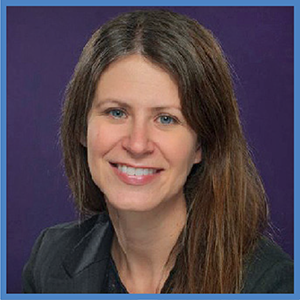 |
Andrea Garcia, JD, MPH, is the Director of Science, Medicine, and Public Health at the American Medical Association (AMA). This department provides content expertise for the association, including the Board of Trustees and the House of Delegates, on issues related to drug policy, genomics and precision medicine, and selected topics in public health including: immunizations and infectious diseases, injury and violence prevention, and environmental science. She also serves as the Secretary for the AMA’s Council on Science and Public Health, which works to represent the AMA’s core belief that scientific evidence is the basis for improving the quality of patient care and enhancing the health of the public. | |
American Medical Student Association (AMSA) |
||
 |
Jasmine Hughes is an incoming first-year Ph.D. student in Clinical Neurosciences at the University of Cambridge. She graduated from East Carolina University with a double major in Biology and Chemistry and a minor in Neuroscience. She also graduated with a Master of Arts in Bioethics at Wake Forest University and a Master of Science in Global Health at Duke University. She is passionate about teaching current issues in ethics, global health, climate change, and its effects on healthcare. | |
American Medical Women’s Association (AMWA) |
||
 |
Bonnie Hamilton, MD, is a pediatrician residing in Fairfield, California and represents the American Medical Women’s Association on the MSCCH Steering Committee. She also serves on the Napa-Solano Medical Society Board, is a delegate to the California Medical Association and Chair of her District Delegation.
Hamilton is deeply engaged in advocating for local, state and federal climate policy and action. She serves on the Leadership Team of the Climate Reality Bay Area Chapter and is trained as a Climate Reality Leader in 2017 with former Vice-President Al Gore. The training was life-altering for Hamilton and made it undeniably clear that we need to change the trajectory we are on for ourselves and for future generations. She also serves on the Board of Sustainable Solano, the Executive Committee of the local Sierra Club and am a delegate to the California Democratic Party. She has an amazing 25 year old daughter and enjoys music, dance and being in nature.
|
|
American Psychiatric Association (APA) |
||
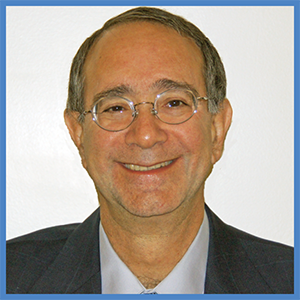 |
Robert Feder, MD, has had an active clinical psychiatric practice in New Hampshire for over 35 years. Bob graduated with Highest Honors in Psychology from the University of Michigan and received his MD from the University of Washington. After completing his Psychiatry residency at Yale, Bob went on to a variety of clinical settings, including running inpatient adult psychiatry and substance abuse units, partial hospitalization programs, and outpatient clinics. After serving as Medical Director for a large Behavioral Health Managed Care Organization, Bob has been in private practice since 2007. He is a Distinguished Life Fellow of the American Psychiatric Association (APA), and a long-time member of the APA Assembly. Bob is active in many climate organizations, including the APA Caucus on Climate Change and Mental Health, the New Hampshire Healthcare Workers for Climate Action, 350NH, and No Coal, No Gas. | |
American Society for Radiation Oncology (ASTRO) |
||
 |
Katie Lichter, MD, MPH, is a resident physician in the Department of Radiation Oncology at the University of California, San Francisco (UCSF). She is also a Climate Energy Health Fellow with the UC Carbon Neutrality Initiative and a Harvard/Cambridge Health Alliance Climate Health Organizing Fellow. She co-chairs the ASTRO Climate Change Task force which grew out of resident-led ARRO Climate Health, Equity, and Sustainability Task Force. Additionally, Dr. Lichter is the principal investigator and founder of the GreenHealth lab at UCSF that investigates the interplay between cancer and climate change focusing on mitigation, adaptation, and advocacy efforts. | |
American Society of Cataract & Refractive Surgery (ASCRS) | American Academy of Ophthalmology (AAO) |
||
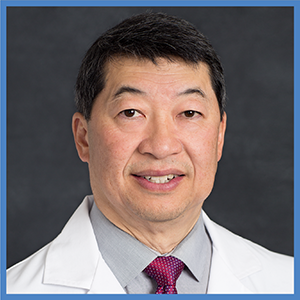 |
David F. Chang, MD, is an executive committee member and past president of the American Society of Cataract & Refractive Surgery (ASCRS), the largest surgical sub-specialty society in ophthalmology. He is a past chair of the American Academy of Ophthalmology (AAO) Cataract Preferred Practice Pattern Panel, which develops the national practice guidelines for cataract surgery. Dr. Chang currently co-chairs the ASCRS Foundation with a focus on global cataract blindness. He also co-chairs the Ophthalmic Instrument Cleaning & Sterilization joint task force (AAO/ASCRS/Outpatient Ophthalmic Surgery Society), which developed specialty-specific instrument processing guidelines for ophthalmology. The task force recently completed a large survey on surgical waste and the carbon footprint of cataract surgery. A graduate of Harvard College and Harvard Medical School, Dr. Chang is a clinical professor of ophthalmology at the University of California, San Francisco, and in private practice in Los Altos, CA. | |
American Society of Cataract & Refractive Surgery (ASCRS) |
||
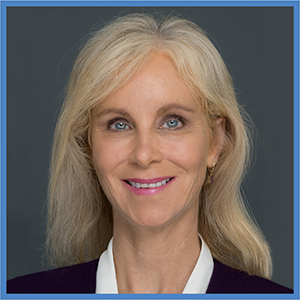 |
Barbara C. Erny, MD, is a board certified ophthalmologist. She currently serves as the ASCRS (American Society of Cataract and Refractive Surgery) Foundation Medical Liaison for International Programs. Dr. Erny’s mission is to foster collaboration and coordinate efforts of organizations committed to eliminating curable blindness in the developing world. A strong advocate for advancing environmental health, Dr. Erny spent many years on the Sutter Health Sustainability Committee. Currently she serves on the Physicians for Social Responsibility Environmental Health Committee, Steering Committee for the Medical Societies Consortium on Climate and Health, and she is a member of the Climate Action Working Group of the International Agency for the Prevention of Blindness. Dr. Erny is on the editorial board of the new online Journal of Climate Change and Health. She is devoted to coordinating efforts of Stanford and UCSF medical students and faculty to integrate climate change education into all levels of physician training. | |
American Society of Clinical Oncology (ASCO) |
||
 |
Jasmine Kamboj, MD, is a Medical Oncologist and Hematologist at Mayo Clinic, Rochester and practices as their community oncologist in the states of Minnesota and Wisconsin. Dr Kamboj finished her fellowship in Medical Oncology and Hematology at Baylor College of Medicine, Houston and is heavily engaged with the American Society of Clinical Oncology (ASCO). She has been appointed the ASCO liaison to the Medical Society Consortium on Climate and Health. She has also served on the ASCO Climate Task Force and has contributed to the tremendous work done by the Task Force. Dr. Kamboj is currently a fellow at the Cambridge Health Alliance’s Climate Health Organizing Fellows program. Dr. Kamboj serves on ASCO’s Government Relations Committee and has served on ASCO’s Health Equity and Outcomes committee, Rural Task Force and Clinical Trials Task Force as well. She has been the recipient of the, “Advocate of the Year Award,” in 2021 by ASCO for her advocacy and equity work and has been name in the President’s Circle in 2022. Her work in advocacy, equity and climate change is commendable. | |
 |
Eric Bernicker, MD, graduated from St. John’s High School in 1982 and then got his undergraduate degree from Yale University, where he majored in History. He returned to Texas for medical school at Baylor College of Medicine, did his internship in Dallas at Southwestern, and returned to Baylor to complete his internal medicine residency. After serving as chief resident for a year at Ben Taub General Hospital, he did his medical oncology fellowship at MD Anderson cancer center and then joined Medical Clinic of Houston in 1996. He had a broad clinical practice of oncology and hematology and was on staff at both St. Luke’s Hospital and Methodist hospital, serving as section chief of medical oncology at St. Luke’s before joining the physicians’ organization of Houston Methodist in 2013. Since joining HMH, he started the thoracic medical oncology service and opened multiple trials for patients dealing with advanced lung cancer or ocular melanoma. He is also the chairman of the Cancer Committee at HMH, which deals with quality initiatives for the oncology service line, as well the head of the Protocol Review and Monitoring Committee of the cancer center. He has a strong interest in the intersection of oncology and public health, editing the textbook “Cancer and Society” and the forthcoming ‘Environmental Oncology. | |
American Society of Nephrology (ASN) |
||
 |
Ankur Shah, MD, is Assistant Professor of Medicine and Associate Program Director of the nephrology fellowship training program at the Warren Alpert Medical School of Brown University. He is a Fellow of the American Society of Nephrology, the National Kidney Foundation, and the American College of Physicians. He has been involved in climate change advocacy at both the regional and national levels throughout his career, as a member of the Rhode Island Medical Society’s Healthcare and Climate Change Committee and having also participated in the development and dissemination of the American Society of Nephrology’s statement on climate change. His primary academic interest is home dialysis including both peritoneal dialysis and home hemodialysis, topics in which he has published numerous peer reviewed articles as well as textbook chapters and has lectured both nationally and internationally. | |
American Society of Pediatric Neurosurgeons (ASPN) |
||
 |
Ann-Christine Duhaime, MD is a senior pediatric neurosurgeon at the Massachusetts General Hospital and is the Nicholas T. Zervas Distinguished Professor of Neurosurgery at Harvard Medical School. Her neuroscience research investigates mechanisms, pathophysiology, imaging, and treatment of injury in the immature brain, using translational and clinical approaches to study injuries occurring in infants and young children, including those seen most commonly in child abuse. The work also investigates plasticity, recovery, and return of brain function in children and adolescents during maturation.
Dr. Duhaime also has a longstanding interest in the relationship between brain and behavior, and in environmental issues. She is a Faculty Associate of the Harvard University Center for the Environment. Beginning with a fellowship at the Radcliffe Institute in 2016 she has explored the neurobiology of reward circuitry and plasticity and its relevance to pro-environmental behavior, and also worked with a diverse team to design a prototype advanced “green” biophilic pediatric hospital. Her book on this work, Minding the Climate, was published in 2022 (Harvard University Press). She now serves as Associate Director of the Massachusetts General Hospital Center for the Environment and Health and as Associate Editor-in-Chief of the Journal of Climate Change and Health. |
|
American Telemedicine Association (ATA) |
||
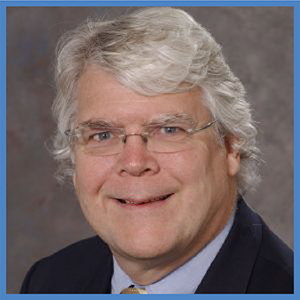 |
Peter Yellowlees, MD, MBBS, is the President of the American Telemedicine Association (ATA) Board of Directors and Professor of Clinical Psychiatry at the Department of Psychiatry and Behavioral Sciences and Vice-Chair of Faculty Development, UC Davis Health System. After completing his medical training in London, Dr. Yellowlees worked in Australia for twenty years before coming to UC Davis to continue his research in telemedicine and eHealth. Dr. Yellowlees has worked in public and private sectors, in academia, and in rural settings. He has consulted to governments and private sector companies in several countries and has received about $12 million in research grants. His main interests are in improving access to health and education services using information technologies. | |
Association of Academic Physiatrists (AAP) |
||
 |
Marcalee Alexander, MD, is currently Clinical Professor of Physical Medicine and Rehabilitation at the University of Alabama School of Medicine in Birmingham, Alabama. Dr. Alexander co-authored the International Standards to document remaining Autonomic Functions after Spinal Cord Injury (ISAFSCI). She is a consultant with the Spalding-Harvard Spinal Cord Injury Model System and has conducted a substantial body of research documenting the effects of spinal cord injury on sexual response in women and men. Dr. Alexander is on the editorial boards of Spinal Cord, Journal of Sex and Marital Therapy and Sexuality and Disability. She is Past President of the American Spinal Injury Association and also Past Vice President representing North America for the International Spinal Cord Society. | |
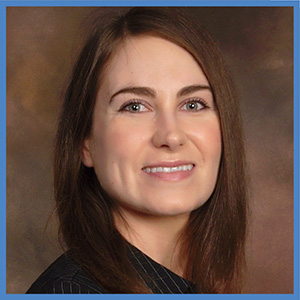 |
Anita Lowe Taylor, MD, graduated summa cum laude from the University of Colorado at Boulder with a degree in Integrative Physiology before earning her Doctorate of Medicine with a concentration in Community Health at Stanford School of Medicine. She completed her residency in Physical Medicine and Rehabilitation at Stanford, where she served as Chief Resident and Co-Chair of both the institution-wide Chief Resident Council and Housestaff Leadership Council, and was recognized with the Innovation and Forward Thinking Award for her work improving the environmental sustainability of outpatient clinics. She holds a certificate in Leadership from the Presidents Leadership Class and has published research on reducing healthcare waste to address climate change. She currently serves on the Public Policy Committee for the Academy of Academic Physiatrists and is an active member of the Montana Health Professionals for a Healthy Climate. In her free time, Dr. Lowe Taylor enjoys hiking, backpacking, snowshoeing, and skiing in Big Sky Country. | |
College of Urgent Care Medicine (COUCM) |
||
 |
Roger Hicks, MD is the Medical Director and co-owner of Yubadocs Urgent Care in Grass Valley, California. A graduate of Brown University and Weill Cornell Medical College, he completed Family Practice residency training at the University of California, Davis Medical Center and became Board Certified in Family Practice and Emergency Medicine. Elected to the Board of Directors of the Urgent Care Association of America in 2011 and re-elected in 2014, he served as Treasurer and Secretary, and is a currently a member of UCA’s Health and Public Policy Committees and its Clinical Response Task Force. He is the Founding President of the California Urgent Care Association, and currently serves on its Board of Directors and as its secretary. He is also the founding president of the South Yuba River Citizens League (known as SYRCL), a grass roots environmental advocacy group based in the Yuba Watershed of northern California formed in 1983. He currently serves on SYRCL’s Wild & Scenic Film Festival committee. | |
Endocrine Society (ES) | Maine Medical Association (MMA) |
||
 |
Daniel Oppenheim, PhD, MD, is a clinical Endocrinologist at Maine Medical Center in Portland, Maine, a teaching hospital affiliated with Tufts University School of Medicine, where he is Associate Professor of Medicine. He has been a member of the Endocrine Society for more than 30 years, has served 2 terms on the Clinical Affairs Core Committee, and currently serves on the Advocacy and Public Outreach Core Committee. He has been a member of numerous Endocrine Society Task Forces and working groups. He believes that global climate change is one of the greatest existential threats to human survival, and that human health is being greatly impacted by this process. He has worked with Physicians for Social Responsibility at the local, state, and national levels to combat climate change. In 2000, he co-authored the first state-specific report on the health impacts of global climate change in Maine, “Death by Degrees”, as well as its update in 2015. | |
Infectious Diseases Society of America (IDSA) |
||
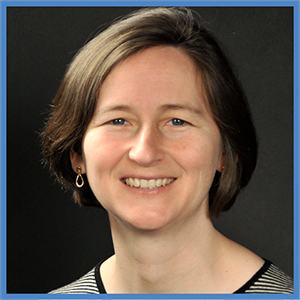 |
Regina LaRocque, MD, MPH, FIDSA, is an infectious disease physician-researcher at Massachusetts General Hospital. She received her medical degree from Duke University School of Medicine and a Master’s in Public Health from the Harvard School of Public Health. She completed her training in internal medicine at Brigham and Women’s Hospital and her fellowship in infectious diseases at Massachusetts General Hospital. She conducts research on diarrheal diseases and travel medicine. She is on staff at the Massachusetts General Hospital Division of Infectious Diseases and is an Associate Professor of Medicine at Harvard Medical School. She serves on the Massachusetts General Hospital Sustainability Committee. | |
Medical Dermatology Society (MDS) | American Academy of Dermatology (AAD) |
||
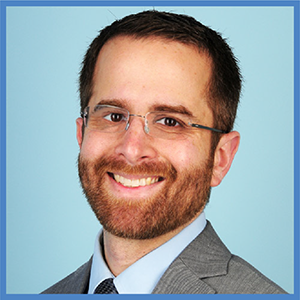 |
Misha Rosenbach, MD, is an Associate Professor of Dermatology and Internal Medicine at the Perelman School of Medicine at the University of Pennsylvania. He is the Vice Chair of Education & Dermatology Residency Program Director. Dr. Rosenbach’s clinical practice is focused on complex medical dermatology in the inpatient and outpatient setting, and his research is focused primarily on sarcoidosis and granulomatous skin conditions. He is involved in local, state, and national efforts focused on sustainability in healthcare and climate change & medicine interactions. He has published more than 200 peer reviewed articles, multiple chapters, and textbooks including serving as one of the editors of Andrew’s Diseases of the Skin. He is the former deputy editor of JAMA Dermatology and remains on its editorial board. He is the President of the Medical Dermatology Society, and has leadership roles in the American Academy of Dermatology, including co-founder and co-chair of the Expert Resource Group on Climate Change. | |
Medical Society of Delaware (MSD) |
||
 |
David P. Donohue, MD, MS, DipABLM, is a fellow of the American College of Physicians and a diplomate of the American Board of Lifestyle Medicine. Since 2000, he has been practicing primary care internal medicine and is co-owner and Chief Medical Officer of Progressive Health of Delaware. He is a founder of the Lifestyle Medicine Network to benefit patients and lifestyle medicine providers and has chaired the American College of Lifestyle Medicine’s Provider Network since 2018. Launched in October 2020, he created HealthRules.org to help people prevent and reverse the underlying cause of disease by promoting key steps to make an impact on their health and hosts the HealthRules podcast. He is also the creator of Health Challenge Delaware, a community-wide health improvement event held every October. Beginning in 2020, he was appointed chair of the Medical Society of Delaware Environmental Health Subcommittee based on his interest in climate change and its effects on health. His expertise is in devising better systems of health care delivery by employing lifestyle medicine and health information technology. He is passionate about using plant-based nutrition and sustainability medicine to achieve patient health, environmental health, and the quintuple aim in health care. | |
Medical Students for a Sustainable Future (MS4SF) |
||
 |
Savita Potarazu, MS4, is a fourth-year medical student in the MD/MPH program at George Washington University School of Medicine & Health Sciences. She completed her undergraduate education at GW where she designed and completed a major in Social Determinants of Health. At GW SMHS, she is one of the founding members of the Climate & Health Interest Group and is the Vice President of Curriculum Innovation. She is currently working on longitudinal curriculum reform with the deans and faculty at her medical school to prepare tomorrow’s physicians to effectively navigate our climate crisis and be better advocates for environmental justice in medicine. Savita has previously served as one of the co-chairs for Climate Smart Health Care for MS4SF, and is committed to empowering her colleagues and future generations of providers to provide equitable, climate-informed care to our communities. | |
National Hispanic Medical Association (NHMA) |
||
 |
Elena V. Rios, M.D., M.S.P.H., M.A.C.P. serves as President & CEO of the National Hispanic Medical Association, (NHMA), representing 50,000 Hispanic physicians in the United States. The mission of the organization is to improve the health of Hispanics. Dr. Rios also serves as President of NHMA’s National Hispanic Health Foundation to direct educational and research activities. Dr. Rios also serves on the National Hispanic Leadership Agenda, the Alliance of Multicultural Physicians and Better Medicare Alliance Boards of Directors, Centene Health Equity Committee, US Department of Health and Human Services, and the VA National Academic Affiliations Council.
Dr. Rios has lectured, published articles and has received several leadership awards, including awards from the U.S. Department of Health and Human Services, the Congressional Black, Hispanic, Asian and Native American Caucuses, American Public Health Association Latino Caucus, Association of Hispanic Health Executives, Minority Health Month, Inc., Hispanic Magazine, Latino Leaders Maestro and Top Latina 100, Verizon’s First Pollin Community Service, and Amerigroup and National Diversity Council Top Healthcare Leaders. Dr. Rios was appointed to the Minority Alumni Hall of Fame of Stanford University in October, 2006, as a Fellow of the New York Academy of Medicine in 2007, the Institute of Medicine Global Forum for Health Professions Education in 2014, as a Fellow (2016) and Master (2022) of the American College of Physicians, and as a member of the Society of Medical Administrators in 2017. Prior to her current positions, Dr. Rios served as the Advisor for Regional and Minority Women’s Health for the U.S. Department of Health and Human Services Office on Women’s Health from November 1994 to October 1998. In 1998-2004, Dr. Rios served as Executive Director, Hispanic Serving Health Professions Schools. In 1993, Dr. Rios was appointed to the National Health Care Reform Task Force as Coordinator of Outreach Groups for the White House. From 1992-94, Dr. Rios worked for the State of California Office of Statewide Health Planning and Development as a policy researcher. Dr. Rios has also served as President, Chicano/Latino Medical Association of California, Founder of the National Network of Latin American Medical Students, member of the California Department of Health Services Cultural Competency Task Force, and Stanford Alumni Association, Women’s Policy Inc., NIH Office of Research on Women’s Health Advisory Committee, Care First Blue Cross Blue Shield, Nurse Family Partnerships, Campaign Against Obesity, and Partnership for Prevention Boards of Directors, PacifiCare-UnitedHealthcare California Investment Committee, CDC Health Disparities Committee, ASU Health Futures Council, Cancer Treatment Centers of America Hispanic Advisory Council and the AMA’s Disparities Commission and Minority Affairs Consortium Steering Committees. Dr. Rios earned her BA in Human Biology/Public Administration at Stanford University in 1977, MSPH at the UCLA School of Public Health in 1980, MD at the UCLA School of Medicine in 1987, and completed her Internal Medicine residency at the Santa Clara Valley Medical Center in San Jose and the White Memorial Medical Center in East Los Angeles in 1990, and her NRSA Primary Care Research Fellowship at UCLA Division of General Internal Medicine in 1992. |
|
National Medical Association (NMA) |
||
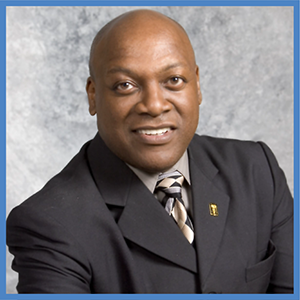 |
Winston Price, MD, FAAP, FACPE, is a board-certified pediatrician and a Past President of the National Medical Association (NMA). He received his MD training at the Weill-Cornell Medical Center and completed his residency at the NY Hospital-Sloan Kettering Medical Center. He is currently an assistant professor at the Medical College of Georgia in the pediatrics department. Dr. Price currently serves as the President and Chair for the National African American Drug Policy Coalition (NAADPC) and also serves as the Chair of the Southwest Georgia Area Health Education Center (SOWEGA-AHEC) which focuses its mission to recruit, train and retain a robust and highly qualified health workforce for 38 counties in SW GA. He focuses his technology efforts as Director of Health Information Technology for the W. Montague COBB/NMA Health Institute and is a board member of the Georgia State Medical Association. He has lectured locally and nationally on topics of health disparities, the NIH All of Us Research Program, climate change, clean water initiatives, vaccine disparities, and child abuse. Dr. Price also practices clinical pediatrics serving a SW population in Georgia with a focus on preventive care and health disparities. | |
Society of Behavioral Medicine (SBM) |
||
 |
Michael A. Diefenbach, Ph.D, is a professor in the Departments of Medicine, Urology and Psychiatry at the Zucker School of Medicine at Hofstra/Northwell and the Associate Director of the Institute for Health System Science at the Feinstein Institutes for Medical Research at Northwell Health. His research focuses on developing theory informed and evidence-based approaches to improve patient care, increase treatment decision making, and reduce health care disparities. As president of the Society of Behavioral Medicine (SBM) he founded the working group on Climate Change and Behavioral Medicine and published the results in a special section in Translational Behavioral Medicine entitled “Climate change and behavior: considerations for the behavioral medicine community and a call to action.” He co-leads the Climate and Health SIG of SBM, is a contributor to the Lancet countdown US Brief on Climate Change and serves as the Education and Communication Chair of the Health Care Sustainability Group within Northwell Health.
|
|
Society for Disaster Medicine and Public Health (SDMPH) |
||
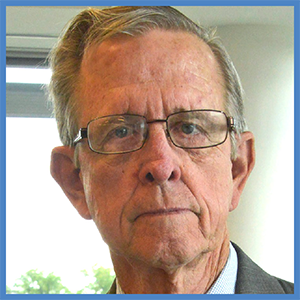 |
James J. James, MD, DrPH, MHA, is the executive director of the Society for Disaster Medicine and Public Health (SDMPH). Dr. James is also the founding editor-in-chief of Disaster Medicine and Public Health Preparedness journal, one of the most important journals in the field of disaster medicine and public health.
Prior to SDMPH, Dr. James was director of the American Medical Association’s Center for Public Health Preparedness and Disaster Response, where he oversaw the development and deployment of the National Disaster Life Support suite of courses (more than 110 000 medical and public health personnel trained) and other innovative mass casualty developments such as a health security smart card and the Citizen Ready preparedness and recovery training modules. Regarded as an expert in the disaster arena, Dr. James has served on many federal and private boards and committees in major policy and research functions. Board certified in general preventive medicine, Dr. James earned a Doctor of Medicine degree from the Cincinnati College of Medicine, Cincinnati, Ohio; a doctorate in public health from the School of Public Health, University of California, Los Angeles; and a Master’s degree in healthcare administration from Baylor University, Houston, Texas. |
|
American Society for Reproductive Medicine (ASRM) | Society for Reproductive Endocrinology and Infertility (SOCREI) |
||
 |
Ruben Alvero, MD, is Professor of Obstetrics and Gynecology at Stanford University School of Medicine and the Division Director of Reproductive Endocrinology and Infertility at the Lucille Packard Children’s Hospital in Palo Alto, California. He graduated from Harvard College and received his medical degree from the Uniformed Services University of the Health Sciences in Bethesda, Maryland. He completed his residency at the Walter Reed Army Medical Center and his fellowship in Reproductive Endocrinology and Infertility (REI) at the National Institutes of Health. Dr. Alvero previously was Professor and Division Director at the University of Colorado and Brown University, Fellowship Director in REI at Brown, and Residency Program Director of Obstetrics and Gynecology at the University of Colorado. He is and has been NIH funded. Dr. Alvero is Immediate Past President of the Society for Reproductive Endocrinology and Infertility. A 27-year veteran of the United States Army, he retired as a Colonel. A native Spanish speaker, Dr. Alvero is devoted to the care of underserved populations. | |
Society for Pediatric Dermatology (SPD) |
||
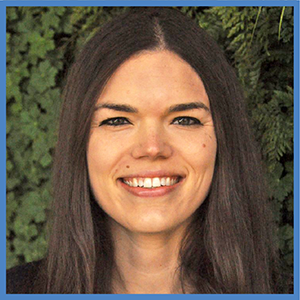 |
Sarah J. Coates, MD, is a Pediatric Dermatology fellow at UCSF and a graduate of the UCSF Dermatology residency program. She received her BA in Government from the University of Texas, and her MD from Weill Cornell Medical College. She has a background in global health and has been working with partners in East Africa (Tanzania, Kenya, and Uganda) since 2011 to improve dermatology care delivery in various capacities. From 2019-2020, she completed a Fogarty International Center Global Health Fellowship through the GloCal consortium. She has been active in raising awareness of the dermatologic consequences of climate change since 2016, and has a special interest in climate-sensitive infectious diseases. She is a core member of the American Academy of Dermatology’s Expert Resource Group on Climate Change and Environmental Issues, and a core member of the International Society of Dermatology’s Climate Change Committee. She is building a career in global health and pediatric dermatology, with areas of expertise that include infectious diseases, HIV dermatology, Kaposi Sarcoma, and climate-sensitive dermatoses. | |
Society of General Internal Medicine (SGIM) |
||
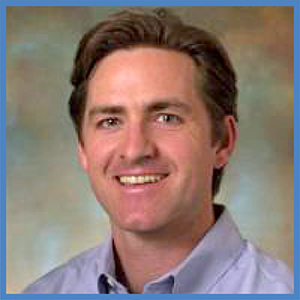 |
William G. Weppner, MD, MPH, FACP, is a Clinician-Educator and Co-Director of the Center of Education for Interprofessional Collaboration at the Boise VAMC. He received his MD and MPH at the University of Washington; he completed his training in primary care internal medicine at the University of Washington-Boise residency program, and a subsequent general internal medicine fellowship in health services and health policy. He is currently an Associate Professor of Medicine with the University of Washington, core faculty with the University of Washington-Boise Internal Medicine Residency and Continuity Clinic Director at the Boise VAMC. As a primary care provider and clinician-educator, he is an advocate of teaching trainees in primary care innovative methods of communicating and engaging patients in their care as part of the PACT model. As an educator and health services researcher, Dr. Weppner has published one book, multiple book chapters, and over 14 manuscripts on health care delivery and education appearing in journals such as JAMA, JAMA Internal Medicine, Academic Medicine, Journal of Graduate Medical Education and Diabetes Care. Raised in Idaho, he enjoys living in Boise and is lucky enough to be able to mountain bike and ski to and from work (weather permitting). | |
Wilderness Medical Society |
||
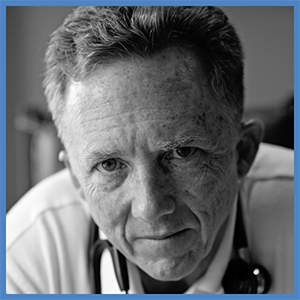 |
Lynn E Yonge, MD, FAAFP, FAWM, is a lifelong outdoorsman and an Eagle Scout. He is the senior partner for Bay Medical Family Practice in Fairhope, AL. He serves as the medical director for two at-risk teen facilities.
Dr. Yonge was a member of the first class of Fellows of the Academy of Wilderness Medicine. He has been a member of the Board of Directors of the Wilderness Medical Society and is a past Chairman of the Environmental Council of the Wilderness Medical Society. He is the coauthor of the Biodiversity chapter in the sixth edition of Auerbach’s Wilderness Medicine text. Dr. Yonge is the Wilderness Medicine Director for the University of South Alabama Department of Emergency Medicine. He leads the senior elective in wilderness medicine for the Alabama College of Osteopathic Medicine and the USA College of Medicine. Dr. Yonge is a passionate environmentalist and an Leave No Trace (LNT) instructor. He is also a certified burn manager and likes to set the woods on fire. He owns and cares for a 340-acre Certified Treasure Forest in rural Alabama. |
|
